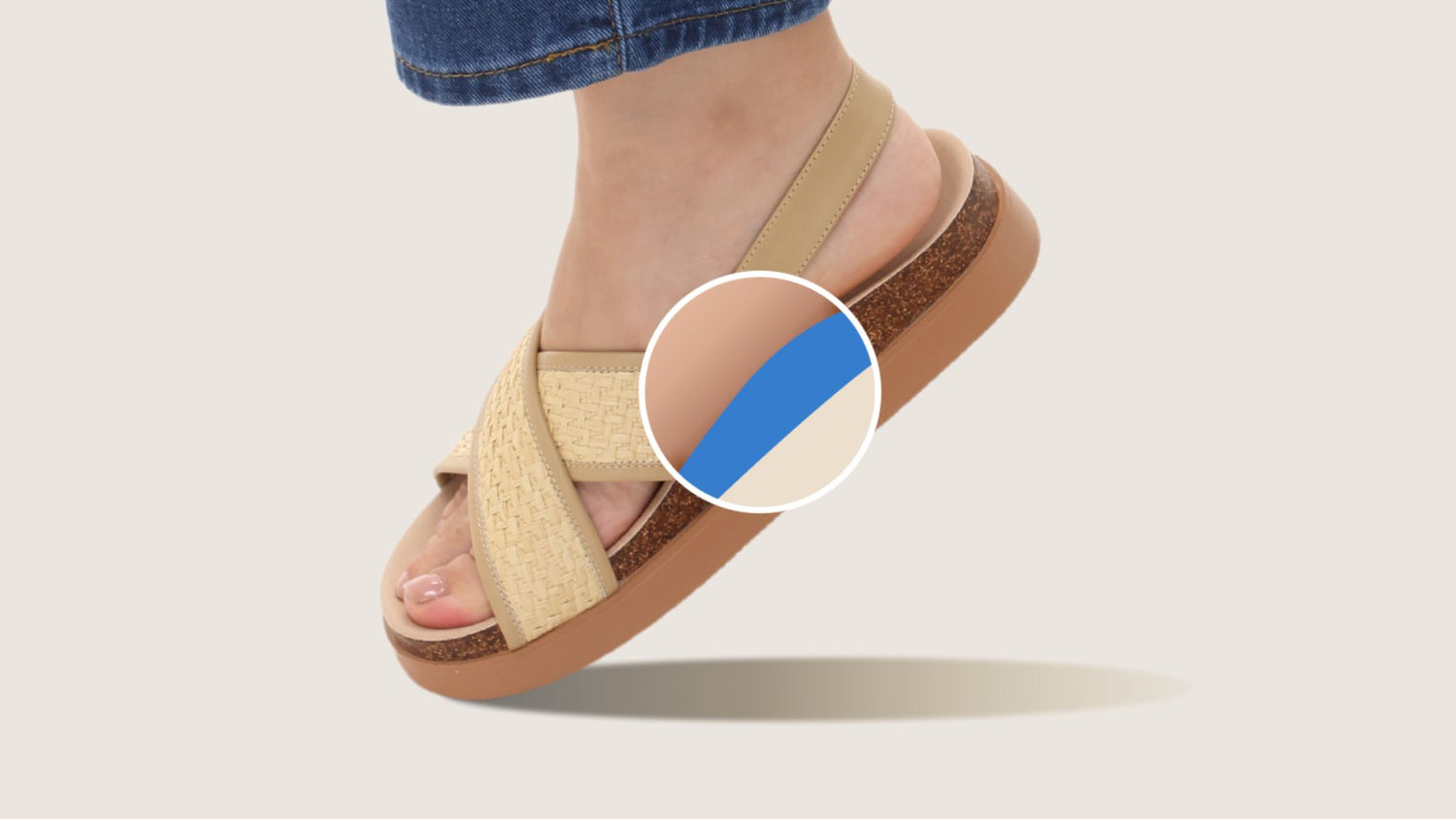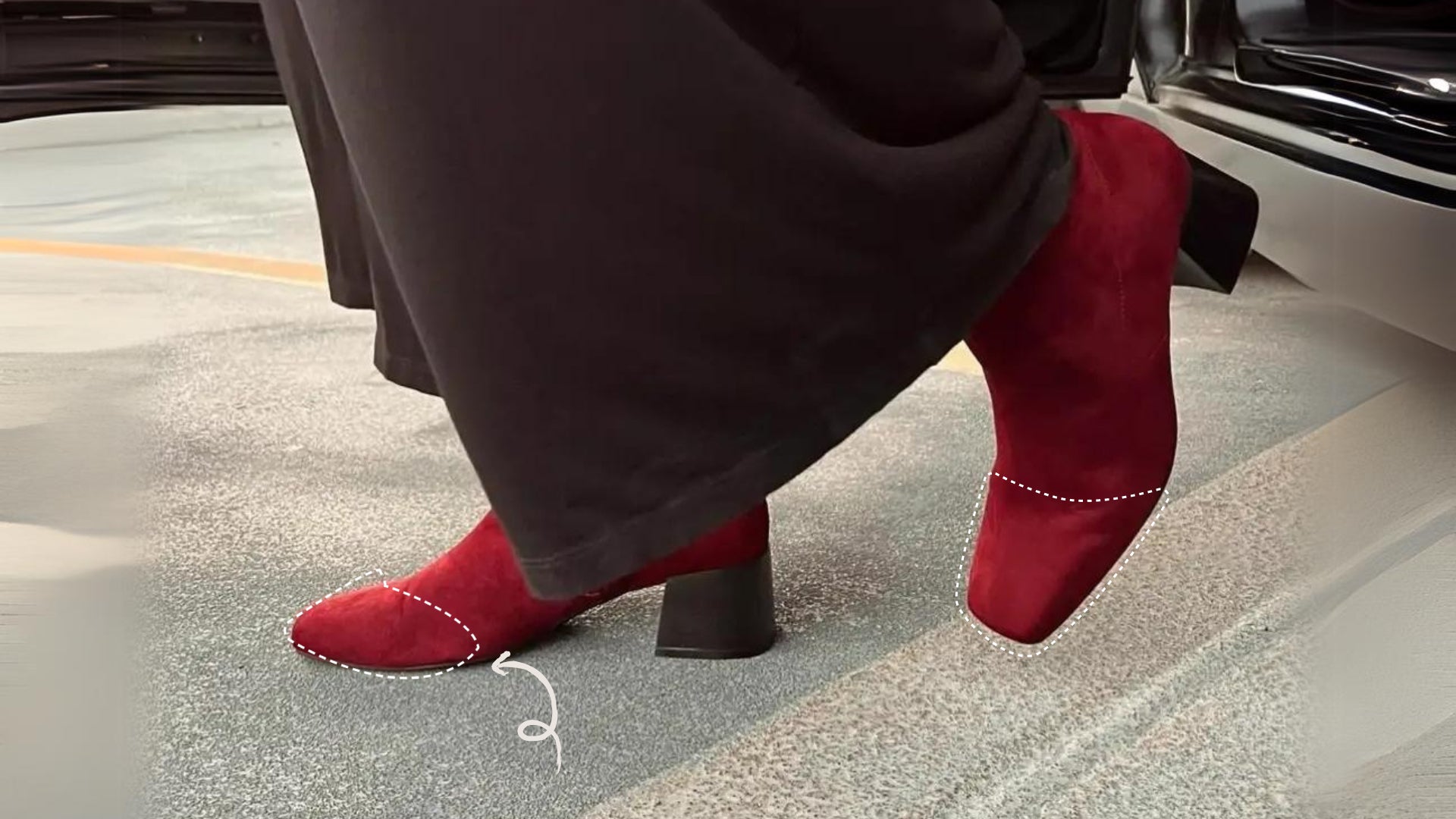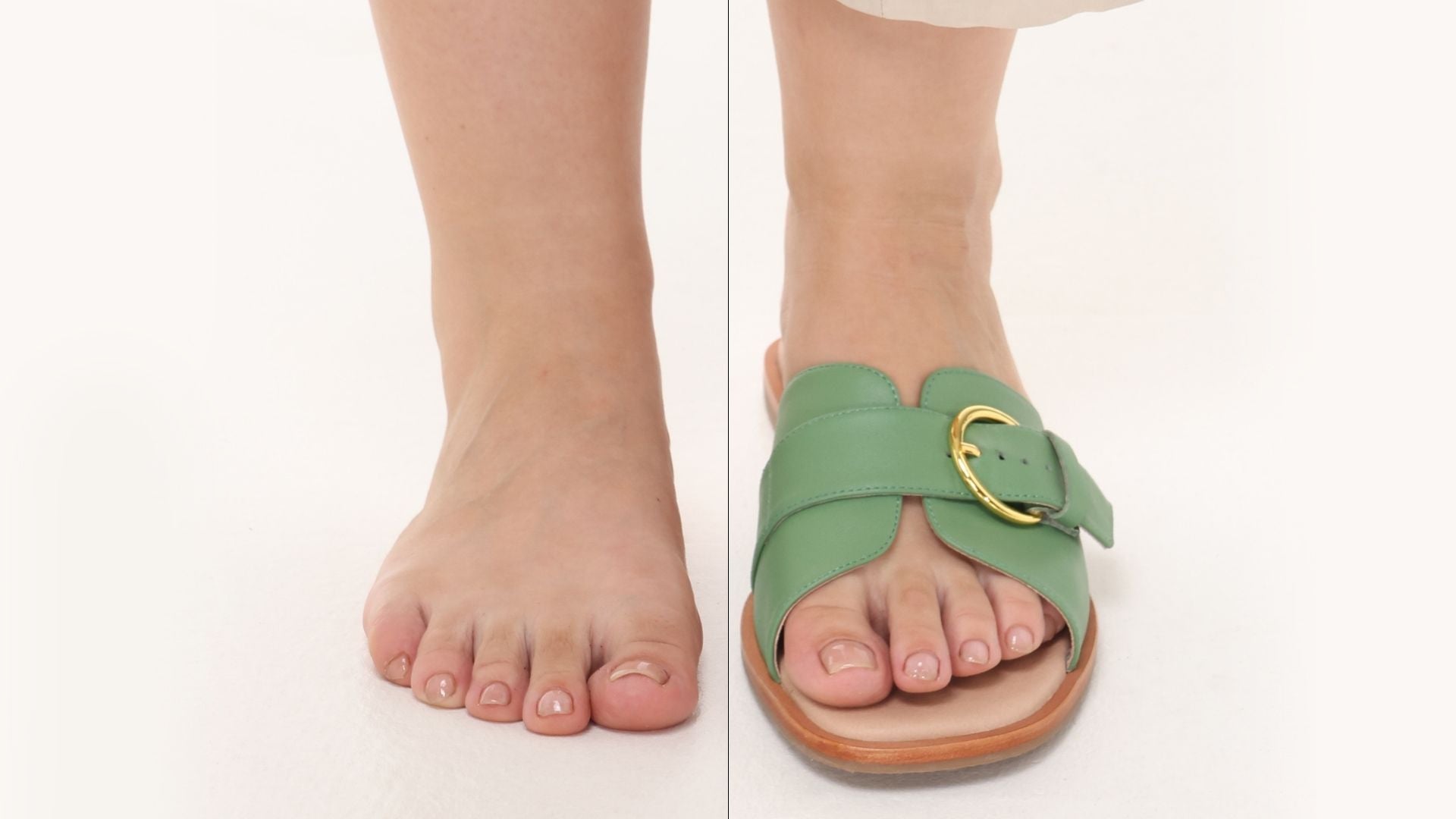Ever noticed your shoes feeling a bit snug, even though they're the pair you've worn a hundred times before? It's not your imagination-your feet might actually be getting bigger. Surprisingly, it's not just kids who outgrow their shoes; adults do too, for all sorts of reasons. From the inevitable aging process to weight gain, and from the swell of pregnancy to various health conditions-our feet can change size in ways we never expected. And when they do, finding comfy shoes becomes a whole new ball game. We're going to walk through what makes our feet grow, how to pick the right shoes for when they do, and tips to keep them from stretching out even more.

1. Why Do Our Feet Grow? Factors Influencing Changes in Foot Size
Natural Changes Over Time
As we age, it's not uncommon for our feet to get bigger. This happens because the tendons and ligaments in our feet might stretch out a bit, causing our feet to spread wider. Also, the protective fat pads on the bottom of our feet can wear down over time, which can make our feet seem longer. So even if you've always known your shoe size, it might change as you get older because of these natural changes in your feet.
Foot Size and Weight Changes
It's natural for our bodies to change, including our feet, especially when we experience weight changes. When we carry extra weight, our feet gently adjust to support us. This can lead to them spreading out a little and becoming broader. Think of it as your feet making sure they're giving you the best support possible every day.
Pregnancy and Foot Expansion
During pregnancy, your body releases hormones that make your ligaments more flexible, which is great for childbirth, but it can also cause your feet to spread. This change can be permanent, leading some women to need a bigger shoe size after they have their baby.
Medical Conditions That Can Affect Foot Size
Certain health problems can cause your foot size to change. Swelling can make your feet bigger, while diabetes can lead to changes in the shape and size of your feet. Arthritis can also change the structure of your foot, affecting its size and the way you walk.
Activity Levels and Foot Musculature
If you're active and play a lot of sports, your feet might get stronger and slightly bigger because of the exercise. On the other hand, if you don't move around much, the muscles in your feet might not be as tight, which can make your feet spread out and change shape.
Improper Footwear and Its Impacts
Wearing shoes that don't fit properly can change the shape of your feet over time. Tight shoes or high heels can cause foot problems like bunions and hammertoes.
Genetic Factors and Heredity
Your genetics play a role in your foot size and shape. If your parents had strong, wide feet, you might too. Genetics affect many things about our bodies, including our foot size and the potential for changes or problems with our feet.
2. How to Choose Proper Shoes for Bigger Feet
Selecting the right wide shoes for large feet is essential for both comfort and style. Here's how you can find a great pair:
Finding the Right Size and Width
For women's shoes, getting the right fit means knowing both your size and width. Sizes aren't just numbers like 11 or 12; they also come in different widths. Since feet can change over time, make sure to measure them regularly to ensure you're still wearing the best size for both the length and the width of your feet.
Toe Box Room Is Key
Make sure the toe area of the shoe is roomy enough so your toes aren't cramped. You should be able to move your toes around. This reduces the chance of soreness and skin issues, and it also accounts for the natural swelling of your feet during the day.
Arch Support Matters
Good arch support is crucial. It helps keep your feet comfortable and can prevent pain. If you have particularly flat feet or high arches, you might need special arch supports or custom-made inserts.
Check the Cushioning and Insole
Adequate cushioning in a shoe helps absorb impact and protect your joints. Look for shoes with thick, soft insoles-they should feel very comfortable as soon as you put them on.
Material Makes a Difference
Choose shoes made from quality materials like genuine leather. These materials are more likely to adapt to the shape of your feet and last longer without losing their shape.
Adjustable Closures Help
Shoes with laces, buckles, or Velcro can be adjusted to fit your feet comfortably, which is helpful if your feet tend to swell throughout the day.
Consider Heel Height and Shape
Keep heel height low for everyday wear-usually no more than two inches-to avoid putting unnecessary stress on your feet. Heels should also match the natural curve of your heels to prevent slipping and provide better stability.
Look at the Outsole
The outsole-the bottom of the shoe-should have good grip to stop you from slipping and should help spread your weight evenly. This is really important when you have big feet.

3. Why You Should Consider Ball Girth When Choosing Wide-Fit Shoes
When you're searching for the perfect shoes, there's more to consider than just how long or wide they are. Many people forget about the ball girth-the area around the base of your toes. It's an important part of your foot that needs the right fit, especially if you need wide-fit shoes. If your shoe is too tight in this area, it's not just uncomfortable. It could cause problems like sore spots or front-foot pain. Shoes that give enough space for the ball of your foot tend to be more comfortable, provide better support, and don't stretch out as quickly.
Getting the ball girth right also makes your shoes feel more stable and supportive. If your shoe doesn't align with your arch correctly because it's too narrow at the ball of your foot, you might experience discomfort and tiredness. A shoe that fits well around the ball of your foot will spread your weight evenly, which keeps you stable, helps your shoes last longer, and prevents uneven wear. Plus, since your feet naturally widen when you're standing or moving, a shoe that accommodates this can help maintain your balance and make walking feel easier. Remember, good-fitting wide-fit shoes take into account every part of your foot, giving you comfort and support wherever you go.
4. How Does Genuine Leather Enhance Shoes for Bigger Feet?
Shoes made from genuine leather are a smart pick for comfort and foot health if your feet are on the larger side. Graded for its premium quality, genuine leather naturally molds to the shape of your feet, giving you a fit that feels like it's made just for you. It's also breathable, which means your feet can stay cool and dry, cutting down on any chance of odors.
Genuine leather has another plus – it's soft yet tough. It gives just enough to let your feet spread out without losing their original shape, making sure your shoes stay comfy and don't pinch, particularly around the ball of your foot.
Instead of wearing out, genuine leather develops a richer look over time, so your larger-sized shoes keep their style game strong. All in all, choosing genuine leather shoes is about getting that perfect mix of long-lasting wear, day-to-day comfort, and timeless style, no matter your shoe size.
5. How to Give Your Feet the Best Care Possible
Many women experience changes in their foot size for various reasons, and it's important you listen to your body and know how to care for it.
- Wear High Heels Less: Too much time in high heels can lead to foot problems. Wear them less often and go for heels that are lower and more comfortable.
- Use Arch Supports: If you have low arches, consider using inserts in your shoes to support your feet and stop them from spreading out.
- Wear Stable Shoes: Shoes with good support can make a world of difference. Look for sturdy, well-made shoes that help distribute your weight evenly across your feet.
- Watch Hormonal Changes: Be aware of hormonal shifts like those during pregnancy that can enlarge your feet. Supportive footwear is key during these changes.

Final Thoughts
Feet can get bigger for all sorts of reasons, but that doesn't mean we should put up with tight and uncomfortable shoes. Make sure you find shoes that fit well, if you can, stay active, and don't wait to deal with foot problems. Remember, taking care of your feet is just as important as any other part of staying healthy.
Read More
- How to Know if Your Shoes Fit Right-Wydr Studios
- Wide Shoes Explained What You Need to Know-Wydr Studios
- No More Aching Feet: Wide Women's Shoes for Bunions-Wydr Studios
- Essential Tips for Maintaining and Caring for Leather Boots-Wydr Studios
- Ultimate Guide For Boots Storage | Wydr | Exclusive Wide Fit Shoes-Wydr Studios



